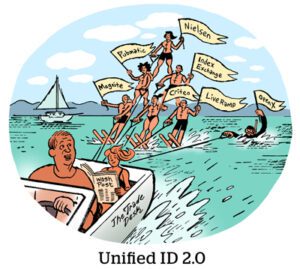 Facebook’s Atlas Advertiser Suite is laying the groundwork to support “programmatic direct” buys for Microsoft inventory.
Facebook’s Atlas Advertiser Suite is laying the groundwork to support “programmatic direct” buys for Microsoft inventory.
Beginning in early 2015, Atlas will begin supporting programmatic purchases of Microsoft ads directly through the Atlas interface. Atlas customers will be able to query avails in Microsoft’s ad serving system and reserve guaranteed buys programmatically. Over time the program will include all Microsoft inventory sources available for direct buying, including MSN, Outlook, Skype, Xbox, and Windows inventory.
“We believe that this will reduce the manual process for advertisers, and better allow Atlas clients to purchase Microsoft inventory in a more efficient way, while also automating the campaign set-up and trafficking in Atlas,” Atlas said in a blog post.
Atlas was previously owned by Microsoft before being sold to Facebook in early 2013.
“Atlas wants to make it easy for advertisers to work across the ecosystem to optimize across devices and channels,” a Facebook spokesperson told AdExchanger. “By making the buying and implementation process more automated, clients can focus more time on driving their business, and making their campaigns most effective.”
Microsoft Advertising Exchange is powered by AppNexus, but AppNexus will not be involved in the integration between Atlas and Microsoft in any way, Facebook said. Rather AppNexus will service real-time bidding auction-based buys as a complement to Programmatic Direct.
Back in September Microsoft joined AOL and Yahoo to create standard APIs around programmatic direct buys, and the Atlas integration appears to be an extension of that work. At the time, Daniel Sheinberg, senior director of display marketplaces at Microsoft, told AdExchanger:
“We wanted to see if the three of us could introduce a standard that the industry could coalesce around. In order to get any traction for the idea that programmatic isn’t just about remnant or real-time bidding in the marketplace, it’s going to have to be an adjustment by the ecosystem and that’s where we’re all in agreement.”
The move comes one month after Atlas set up a creative partner program, beginning with rich media vendors Innovid and Flite. Those tie-ins allowed Atlas’s agency customers to more easily integrate rich media into their campaigns, both from a trafficking and reporting standpoint.














